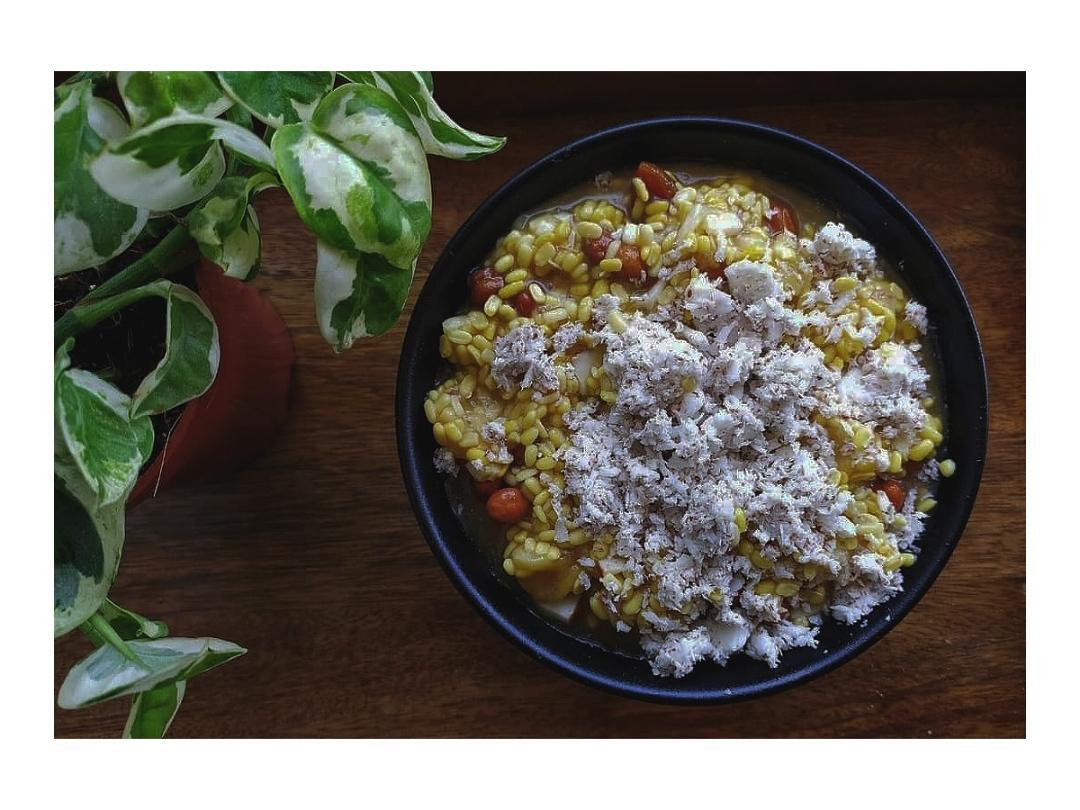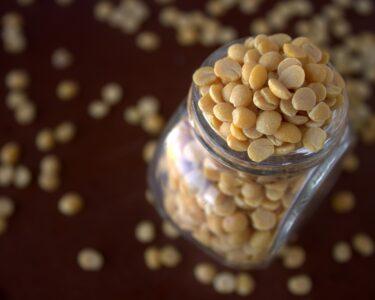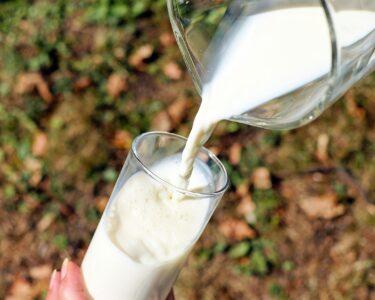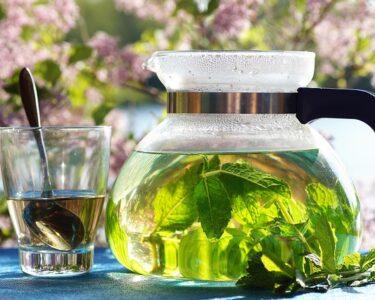Diet is very important for the recovery of covid patients. It should be healthy, nutritious, rich in micro as well as macronutrients. So you can’t really depend on outside food. However, managing every household work, cooking, cleaning, regular office work on time seems like quite a task.
To cope up with the situation I have few suggestions for you on how to prepare easily digestible, nutritious recipes within a short time, with minimum effort and time, using minimum utensils. Being a covid survivor and a nutritionist, let me share few such meal ideas with you.
First thing first, the diet of patients must be modified based on their nutritional requirements and symptoms.
Dietary Modifications necessary for Covid Patients
Meet the protein requirement
Protein requirement increases in any types of infections, including COVID-19 patients. Antibody production needs protein. The meal should rich in protein, containing both plant proteins and animal proteins.
Food selection
- Moderate intake of plant proteins like mushrooms, soybean, and pulses are suggested. Pulses tend to increase intestinal gas formation. So, avoid excess pulse (dal) intake.
- Dairy products like milk, curd, yoghurt, channa should be given twice a day.
- Intake of 1 or 2 servings of animal protein foods (egg, fish and chicken, etc) should be included in the diet.
- In the case of vegetarians, a combination of plant proteins, complemented with 2-3 servings of dairy products is suggested.
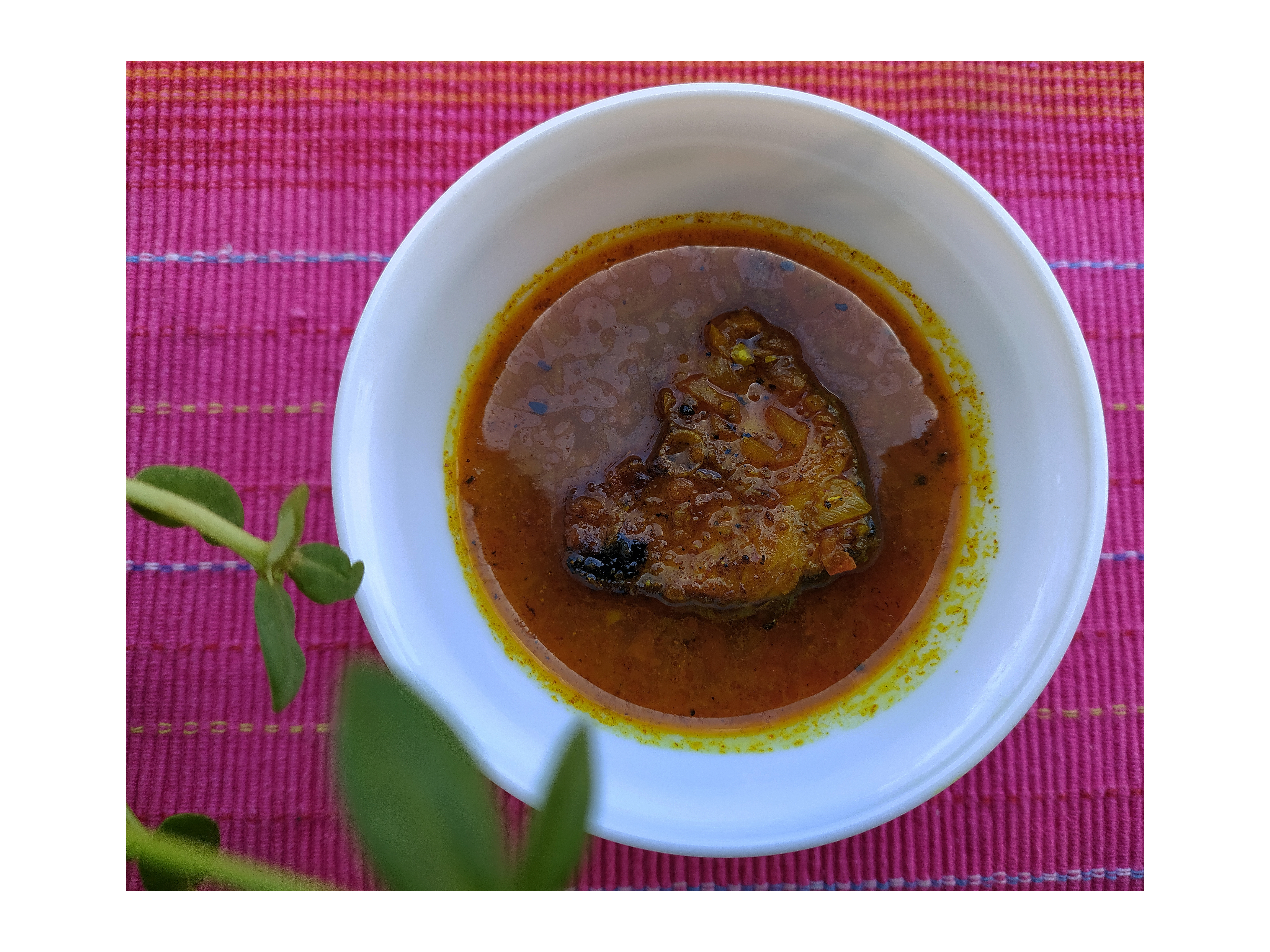
Consume enough Carbohydrate
Intake of adequate carbohydrate is needed –
- to supply energy and
- to prevent weight loss and excessive weakness which are common complications of corona patients.
Food selection
- Among the cereals easily digestible rice, roti or oats are preferred than millets which are difficult to digest.
- Intake of high fiber foods should be reduced. Freshly prepared homemade fruit juices can be taken instead of whole fruits.
- Excess intake of fiber-rich vegetables like beans, cauliflower, cabbage, radish is not suggested because they are difficult to digest and may cause intestinal gas formation, abdominal fullness, etc.
- If the patient is diabetic, then glucose water, sugar, and fruit juices should be avoided.
Focus on fat
Fat is more difficult to digest than carbohydrates or proteins. Since the digestive capacity of COVID patients is reduced, it is judicious to reduce the intake of fatty foods.
A low-fat diet is better tolerated because they are easy to digest.
Food selection
- Chips, fried foods, high fat foods should be avoided.
- Egg yolk, milk fat, half teaspoon of butter or ghee with lunch or dinner can be tolerated.
- Avoid the use of excess cooking oil, vanaspati, margarine, ghee and butter.
- Avoid all types of processed foods like cakes, doughnuts etc.
Meet the Requirements for vitamins, minerals, and antioxidants
Adequate intake of vitamins and minerals helps to boost immunity and fight against the virus.
Excess oxidative stress is common among corona patients which increases the severity of the disease and risk of complications. Antioxidants help to reduce oxidative stress and ensure early recovery.
The diet should be rich in vitamins, minerals and antioxidants.
Food selection
- Red, orange, and green colored vegetables and fruits are good sources of these nutrients.
- Vegetable soups and fruit juices, milk-fruit shakes, coconut water, nimbupani are a good option for COVID-19 patients for ensuring adequate intake of vitamins, minerals, and antioxidants.
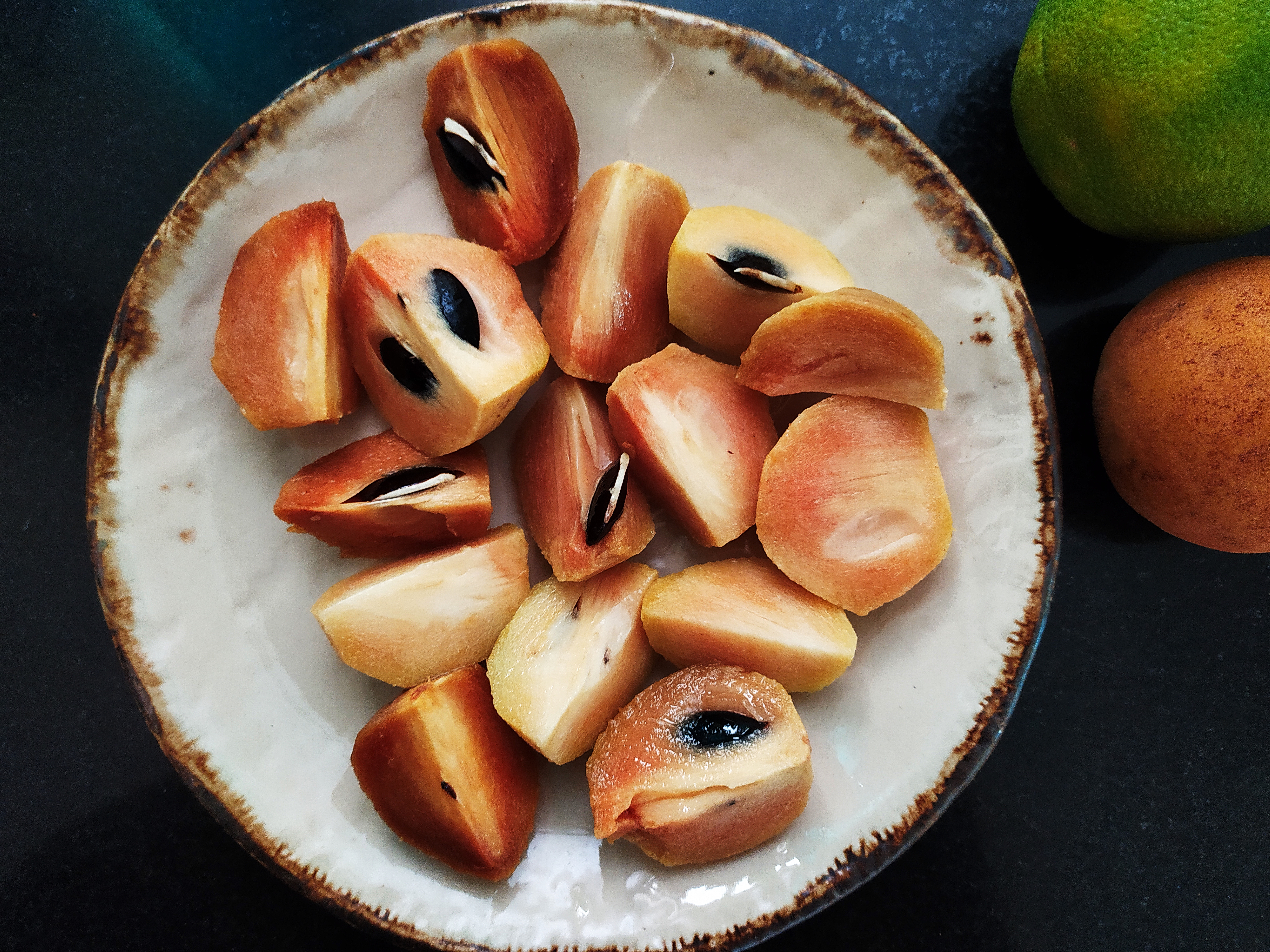
Watch the water intake
Adequate hydration is necessary for the COVID patients-
- To reduce body temperature in fever
- To prevent dehydration if diarrhoea or vomiting is present.
- To eliminate toxins from the body.
- To ensure good digestion and renal function.
- To prevent constipation
Food selection
- To ensure sufficient water intake COVID positive patients should drink plenty of water.
- Liquid foods like soups, sattu water, milkshake, smoothies, etc. contain a substantial amount of water.
- Home-made beverages like fruit juice, nimbupani, fruit juices, turmeric milk, etc, should be given in plenty to increase water intake.
Have some Probiotic
Probiotics are beneficial bacteria present in our foods that are good for our health. Probiotic rich foods help in the rapid recovery of the patient.
Food selection
- Fermented milk products like curd, yoghurt, and buttermilk are rich sources of gut-friendly beneficial probiotics.
- Fermented rice products like idli, dosa, pantavaat, etc are also a good source of probiotics. So, these types of dairy products should be included in the diet.
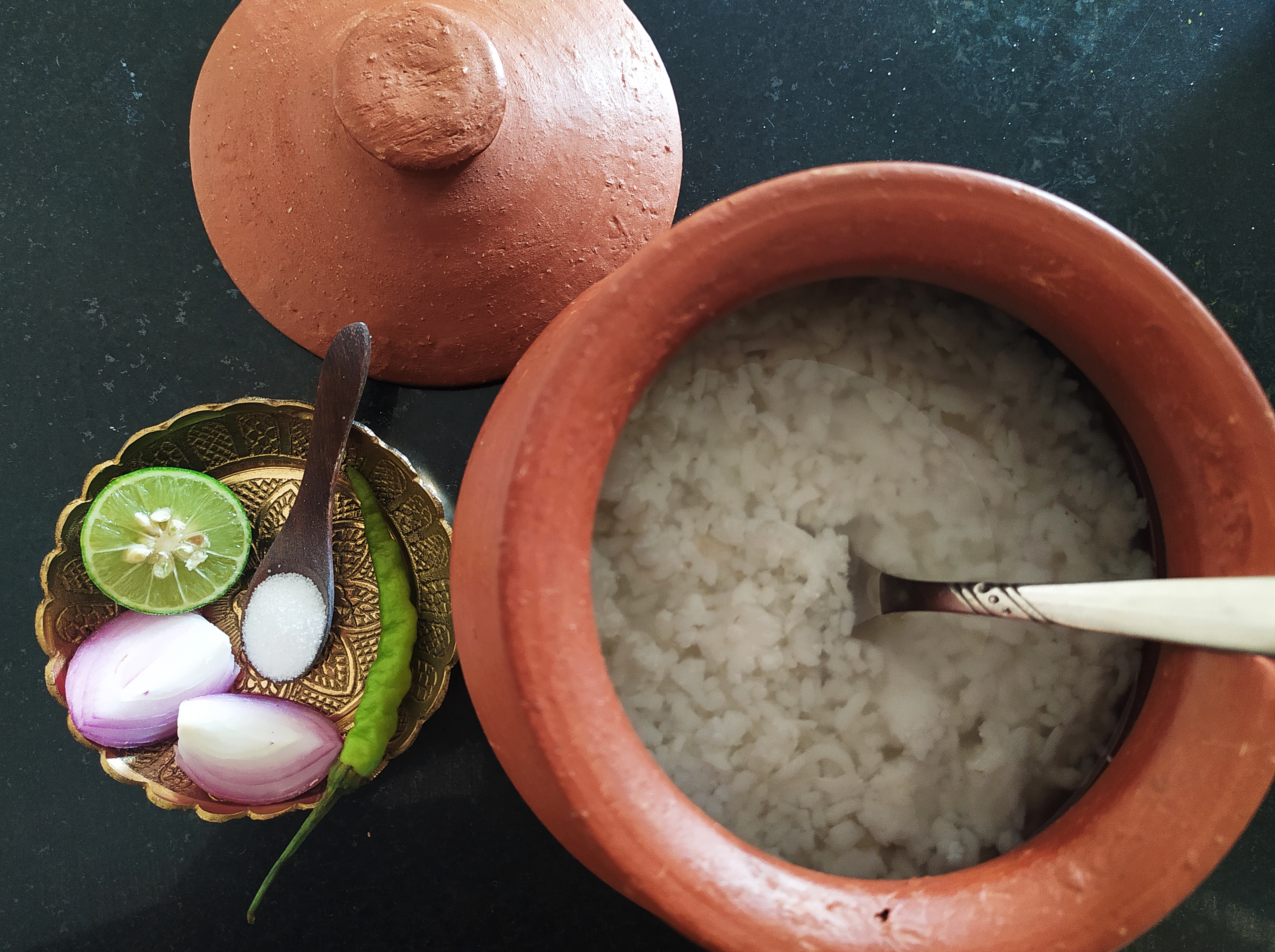
Food should be easily digestible
- Easily digestible foods are better tolerated by COVID patients. Poor digestive capacity occurs among many patients. Diarrhea and /or vomiting are present in some corona patients.
- Any foods which are difficult to digest should be avoided.
- Intake of high fiber foods like pulses, beans, vegetables, etc. should be restricted.
- High-fat foods (like fried foods) are to be avoided.
Food should be easily acceptable
Throat problems, including sore throat, throat pain, etc are very common among corona patients. Inflammation may present in the throat and digestive tract, so it is better to avoid all types of irritating foods.
Food should be –
- easy to swallow (semi-solid consistency and softly cooked recipes)
- not too hot or too cold (avoid cold drinks, too hot tea or coffee).
- non-spicy (less spicy recipes are preferred)
- non-irritable (reduce the use of chillies and peppers).
- Small and frequent meals are better tolerated.
Small amounts of foods should be given at frequent intervals. 6 to 8 meals in a day are ok for an adult. If the appetite of the patient is reduced a lot, even 10 smaller meals can be given in a day.
- Breakfast and snacks can be split into halves which are to be given in 4 times.
- The amount of food given during lunch and dinner should be reduced. The patient should not be pressurized to take more foods because it may cause digestive difficulty.
- A post-lunch liquid food can be incorporated into their daily diet which can be given 2 hours after lunch. A glass of chaas, lassi, buttermilk, or a small bowl of curd can be given.
- During bedtime, a cup of warm milk can be offered after 1 hour of taking dinner.
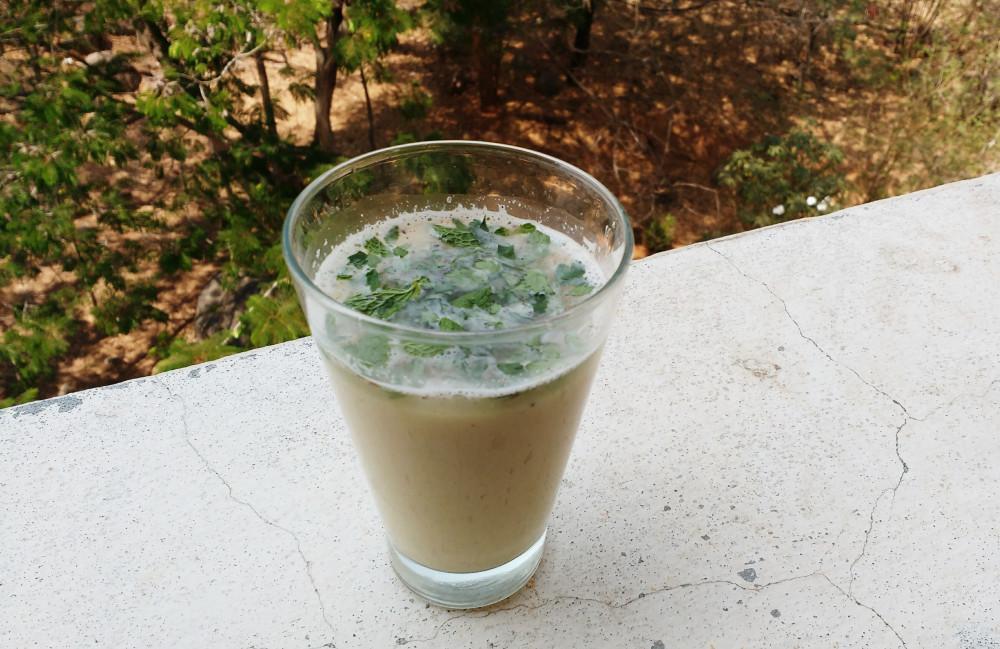
Table-1: Timings of meal
| No of Meals | Name of meal | Timings |
| 1. | Morning Tea | 7.00 am |
| 2. | Breakfast-1 | 8.00 am |
| 3. | Breakfast-2 | 10.30 am |
| 4. | Lunch | 1.00 pm |
| 5. | Post lunch beverage | 3.00 pm |
| 6. | Evening tea | 4.30 pm |
| 7. | Evening Snack-1 | 5.00 pm |
| 8. | Evening Snack-2 | 7.00 pm |
| 9. | Dinner | 9.30 pm |
| 10. | Bed time | 10.30 pm. |
Easy and Quick Meal ideas for the lunch & dinner of COVID-19 Patients
A healthy meal can be prepared for lunch or dinner within half an hour using judicious use of kitchen ingredients. Following points should be remembered during preparation of main meal-
- It should be nutritious
- Only 2 to 3 easy-to-prepare recipes are adequate.
- A pressure cooker should be extensively used to reduce cooking time.
- The use of a domestic mixer grinder also helps to shorten cooking time and achieve soft consistency of foods.
- Minimum utensils should be used because you should remember there is no domestic help.
Recipe-1: Tomato rice with egg omlet and raita
Preparation Time: 30 minutes
Ingredients Required
- Rice: Half cup
- Egg: One
- Curd: One small bowl
- Onion (finely chopped): Half cup
- Tomato (finely chopped): Half cup
- Cucumber (finely chopped): Half cup
- Spices
- Salt
- Black salt
- Black pepper
- Turmeric powder
- Ginger paste
- Cumin seed powder

How to Prepare
- Take half a cup of raw rice with one cup of water in a pressure cooker. Cook for 5 to 7 minutes. Now take a teaspoon of oil in a kodai, fry onion, and tomato, add a little ginger paste, turmeric powder, cumin seed powder, salt, and sugar to it, cook for few minutes until the oil starts to separate. Now add the boiled rice, mix well. Your tomato rice is ready.
- Take a small bowl of curd. Add finely chopped onion, tomato, and cucumber to it and mix well. Now add a pinch of black salt and black pepper and half a spoon of sugar. Mix well by stirring. Your probiotic-rich raita is ready to serve.
- Break a raw egg in a small bowl and add chopped onion and black salt to it. Mix well. Now grease a tawa with little oil, roast the egg, turn it and cook for a minute. Your omelet is done.
- Serve the vitamin-C-rich tomato rice with high protein egg omelet and probiotic-rich raita.
Recipe-2: Roti with chicken stew
Preparation Time: 30 minutes
Ingredients Required
- Chicken: 100g
- Green papaya (slices): Half cup
- Potato (slices): Half cup
- Onion (chopped): Half cup
- Carrot (slices): 1/4th cup
- Beans (slices): 1/4th cup
- Ginger (grated): one teaspoon
- Garlic(chopped): half teaspoon
- Coriander leaves (chopped): Half cup
- Green peas: one tablespoon
How to Prepare
- Take a teaspoon of oil in a pressure cooker, add chopped garlic cloves, and grated ginger and cook for a minute. Now add chicken pieces, a pinch of turmeric powder, and salt. Chicken becomes slightly soft and light brown in color.
- Now add 2 cups of water and all the vegetable pieces to it. Add salt as per taste. Cook for 10-15 minutes in the pressure cooker. Your chicken soup is ready.
- Add the chicken soup with little butter and serve it with roti.

Recipe-3: Fish and rice
Preparation Time: 30 minutes
Ingredients Required
- Rice: As per requirement
- Fish (any variety): 6 pieces
- Vegetables like potato, papaya, green banana, parwal, brinjal, beans etc. (according to your choice): Cut into pieces
- Salt and spices: As per taste
How to Prepare
- Fry the fishes.
- Prepare a smooth spice mix by adding a little ginger paste, turmeric powder, cumin seeds powder, and coriander powder in 2 tablespoons of water.
- Fry all vegetables, add the spice mix, and stir till oil starts to separate.
- Now add water (as required) and salt ad cook for few minutes. Add fried pieces of fish.
- Cook for another 3 minutes. Your fish curry with vegetables is ready.
- Take a cup of raw rice in a pressure cooker and add 2 cups of water. Cook for 5 minutes if it is arawa (raw rice) rice. If the rice is usna (parboiled) type, cook for 8 to 10 minutes.
- Serve the boiled rice with fish curry. It is a completely balanced diet, providing carbohydrates, protein, fat, fiber, vitamins, and minerals.
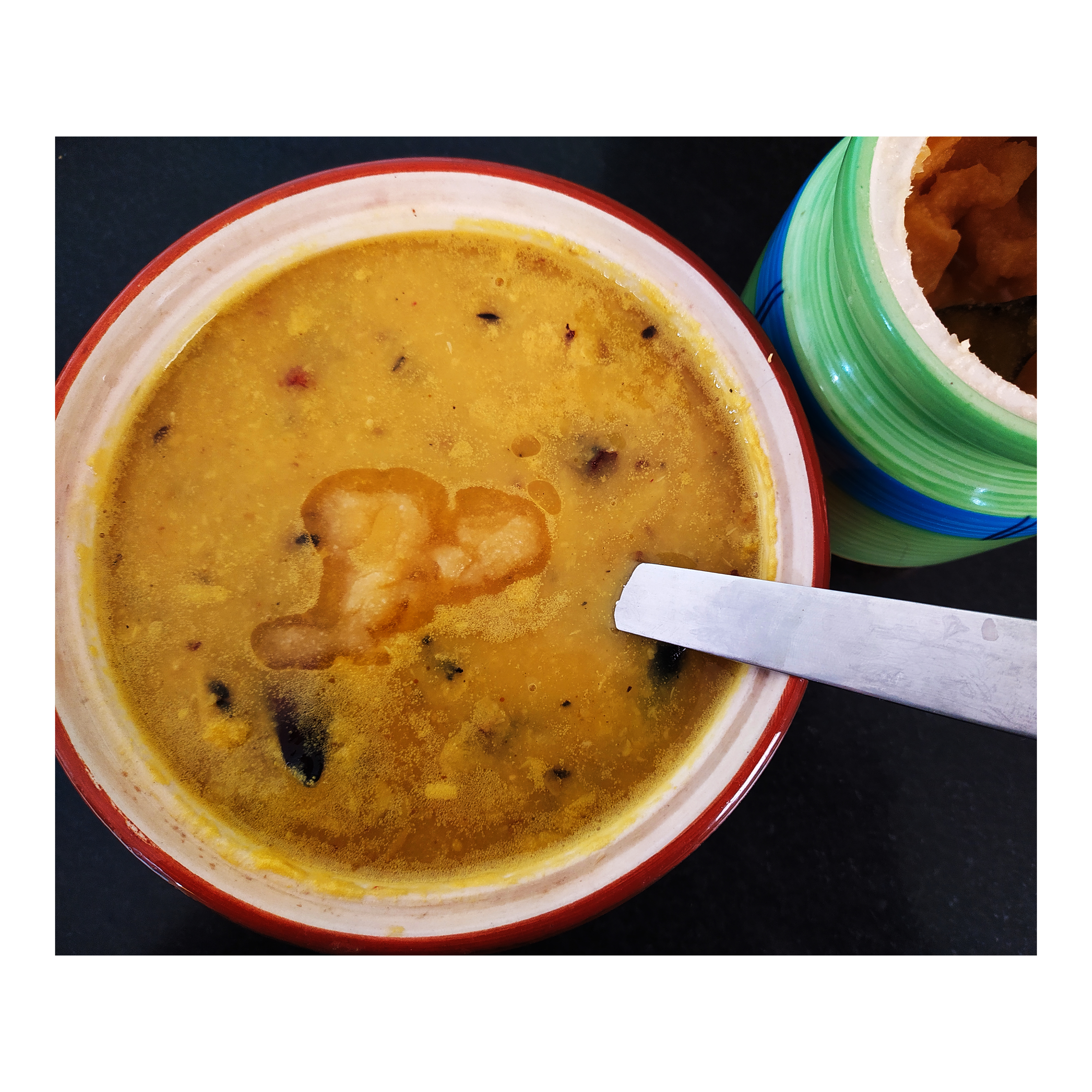
Recipe-4: Rice mixed dal and boiled potato
Preparation Time: 20 minutes
Ingredients Required
- Rice: ½ Cup
- Dal: ¼ Cup
- Potato: 1 medium size
- Onion (chopped): one
- Tomato (chopped): two
- Salt: A pinch
- Turmeric powder: 1/4th teaspoon
- Butter or ghee: 1/4th teaspoon
How to Prepare
- It is the easiest meal for any household. Just boil the rice in a pressure cooker.
- Boil any type of dal with chopped onion, tomato, and potato (cut into halves) along with little salt in a pressure cooker.
- Heat oil, add kalonji (black cumin seeds), add the boiled dal. Cook for 2-3 minutes. Your cooking is done.
- Smash the boiled potato and mix it with little salt and butter. If you like, you may add chopped coriander leaves and chopped onion with the mashed potato.
- Serve rice and dal, mashed potato along with a piece of lemon.
- You may further increase the nutritive value of the meal by further adding another item like egg omelet or curd or raita, the preparation of which needs only 2-3 minutes.
- This diet is rich in all the macronutrients (carbohydrate, protein, and fat). Moreover, it also supplies certain vitamins.

Recipe-5: Dalia Polao with Curd
Preparation Time: 20 minutes
Ingredients Required
- Dalia: 100g
- Carrot (grated): Half cup
- Beans (thin slices): Half cup
- Green peas: 1 handful
- Ghee or butter or white oil: one teaspoon
- Salt: as per taste
- Sugar: One teaspoon
- Green chilies: two
How to Prepare
- Soak dalia in warm water for half an hour.
- Heat ghee or butter or white oil in a kodai, fry carrot, and beans.
- Now add soaked dalia and green peas to it. Add salt and sugar. Mix well. Cover it. Cook for 10 minutes. Stir occasionally to avoid burning.
- Now add green chilies and switch off the gas.
- Serve the dalia polao with curd.
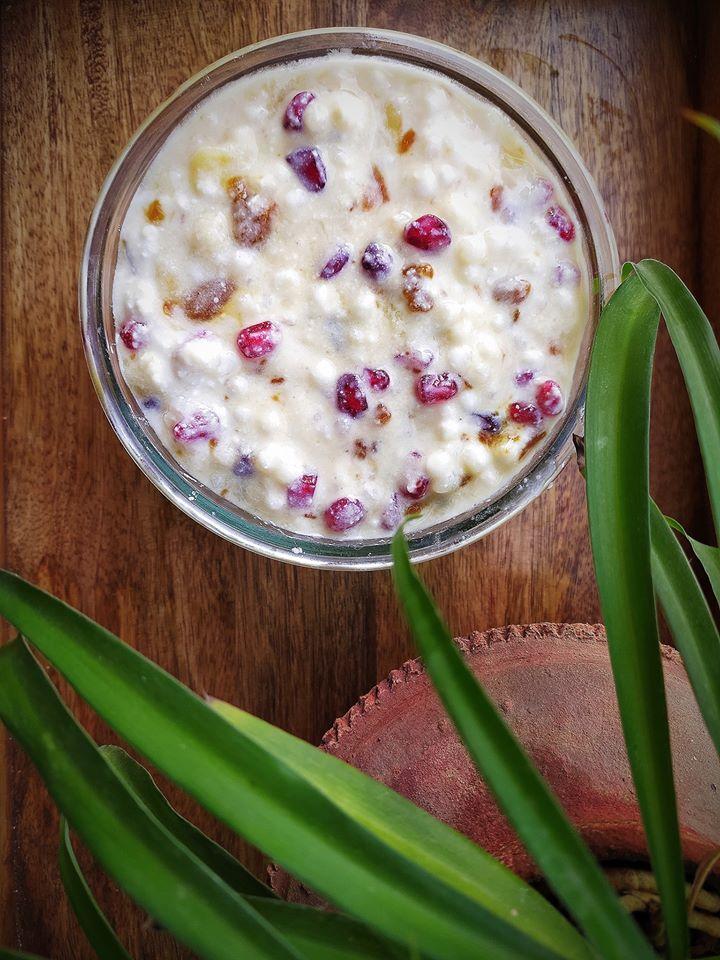
Recipe-6: Rice milk and fruit
Preparation Time: 15 minutes
Ingredients Required
- Rice: Half cup
- Milk: One cup
- Sugar: 1 teaspoon
- Banana or Mango: One
How to Prepare
- Boil rice and milk separately. A pressure cooker can be used to prepare rice which reduces cooking time.
- Mix the required amount of milk and rice and sugar. Cut the fruit into small pieces and add to it. Serve the dish.
Recipe-7: Curd rice
Preparation Time: 15 minutes
Ingredients Required
- Curd: 1 small bowl
- Rice: 1/4th cup
- Salt: A pinch
- Curry pata: Few leaves
- Mustard seeds: a pinch
- Oil: one teaspoon
- Dry chilli: one
How to Prepare
- Softly cook rice in a pressure cooker. Add homemade curd to the rice.
- Heat mustard oil, add one dry chili, a pinch of mustard seeds and black salt, and few curry leaves. Fry for a minute and add the whole mixture to the curd rice. Mixed thoroughly. Your probiotic-rich healthy meal is ready.
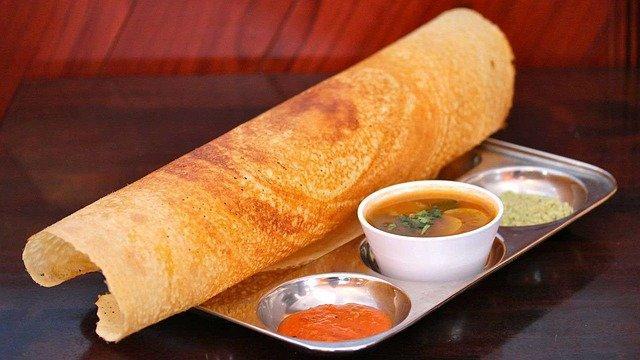
Recipe-8: Dosa and green chutney
Soaking time:16 hours.
Cooking time: 3 minutes
Ingredients Required
- Boiled rice: 1 cup
- Urad dal: 1 cup
- Fenugreek (Methi) seeds: A pinch
- Salt: As per taste
- Oil: ½ teaspoon
- Coriander leaves: 2 handful
- Mint leaves: few leaves
- Green chili: one
- Tomato: one
- Garlic: 2 cloves
- ginger (grated): half teaspoon
- Black salt: a pinch
How to Prepare
- Soak rice, dal, and methi seeds together for 8-10 hours. Keep them at room temperature. Grind them into a smooth semi-solid paste and keep the paste for another 6 hours at room temperature.
- Take the required amount of batter, add a pinch of salt and mix well.
- Grease a tawa with oil, heat it, add a spoon of batter, spread in a thin layer, cook for a minute. Now turn it in and cook the opposite side for few seconds. Your probiotic-rich breakfast is ready to serve.
- For preparing green chutney, take 2 handfuls of coriander leaves, few mint leaves, one green chili, one tomato, and 2 cloves of garlic in a mixing jar. Now add half a teaspoon of ginger paste, a pinch of black salt, and 3 tablespoons of water. Ground them together. Your green chutney is ready. Serve it with freshly prepared hot dosa.
Dosa is a probiotic-rich recipe whereas green chutney is full of antioxidants, vitamins and minerals.
Most Frequently Asked Questions on the Diet of COVID-19 patients
Q 1. Why adequate hydration is essential during a corona attack?
Hydration of the body is very important for all ages of people but it is more important for corona positive patients.
Proper hydration helps to
- Prevent dehydration due to fever and /or diarrhoea
- Ensure efficient elimination of toxins
- Ensure good digestion
- Maintain good digestion
- Avoid complication
- Rapid recovery of the patient.
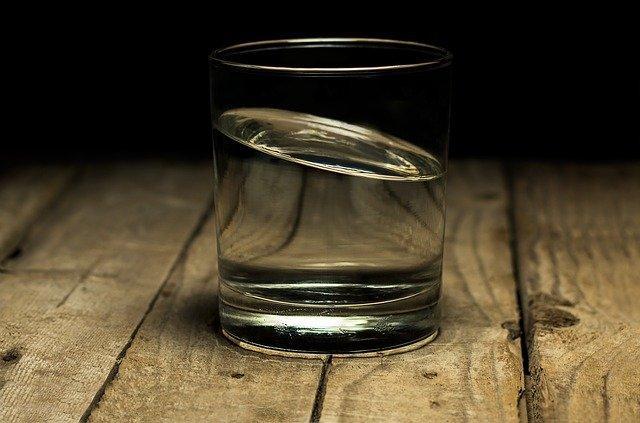
Q 2. How can we maintain a healthy diet during the COVID-19 pandemic?
Or What can I do to keep myself healthy during the COVID-19 outbreak?
We should maintain the following dietary principles to prepare a healthy diet during COVID-19 pandemic.
- Avoid a monotonous diet. Instead include variety of whole grains (rice, wheat, millets), pulses (different types of dals), fruits and vegetables in your daily diet.
- Eat plenty of seasonal fruits like red- and orange-coloured fruits, citrus fruits, juicy fruits etc.
- Include more amounts of coloured vegetables (orange, yellow and green coloured) in your everyday meals.
- Eat more milk and fermented dairy products like curd, yoghurt, buttermilk etc.
- Among the animal protein foods, eggs and fish are better than red meats.
- Restrict daily salt intake of an adult within one teaspoon (5g) in a day.
- Mix an equal proportion of black salt and iodised common salt in a container and use it for cooking.
- Reduce the intake of processed foods like instant breakfasts, potato chips, salted peanuts etc.
- Every day, eat a combination of different foods including whole grains such as wheat, maize and rice, legumes like lentils and beans, fruit and vegetables and some foods from animal sources (e.g., meat, fish, eggs and milk).
- Limit intake of sugar-sweetened beverages like soft drinks, commercially available fruit juices, milkshakes etc.
- Avoid excess intake of sweets and desserts.
- Proper hydration is essential to maintain good health and to ensure better immunity. Stay hydrated, stay healthy.
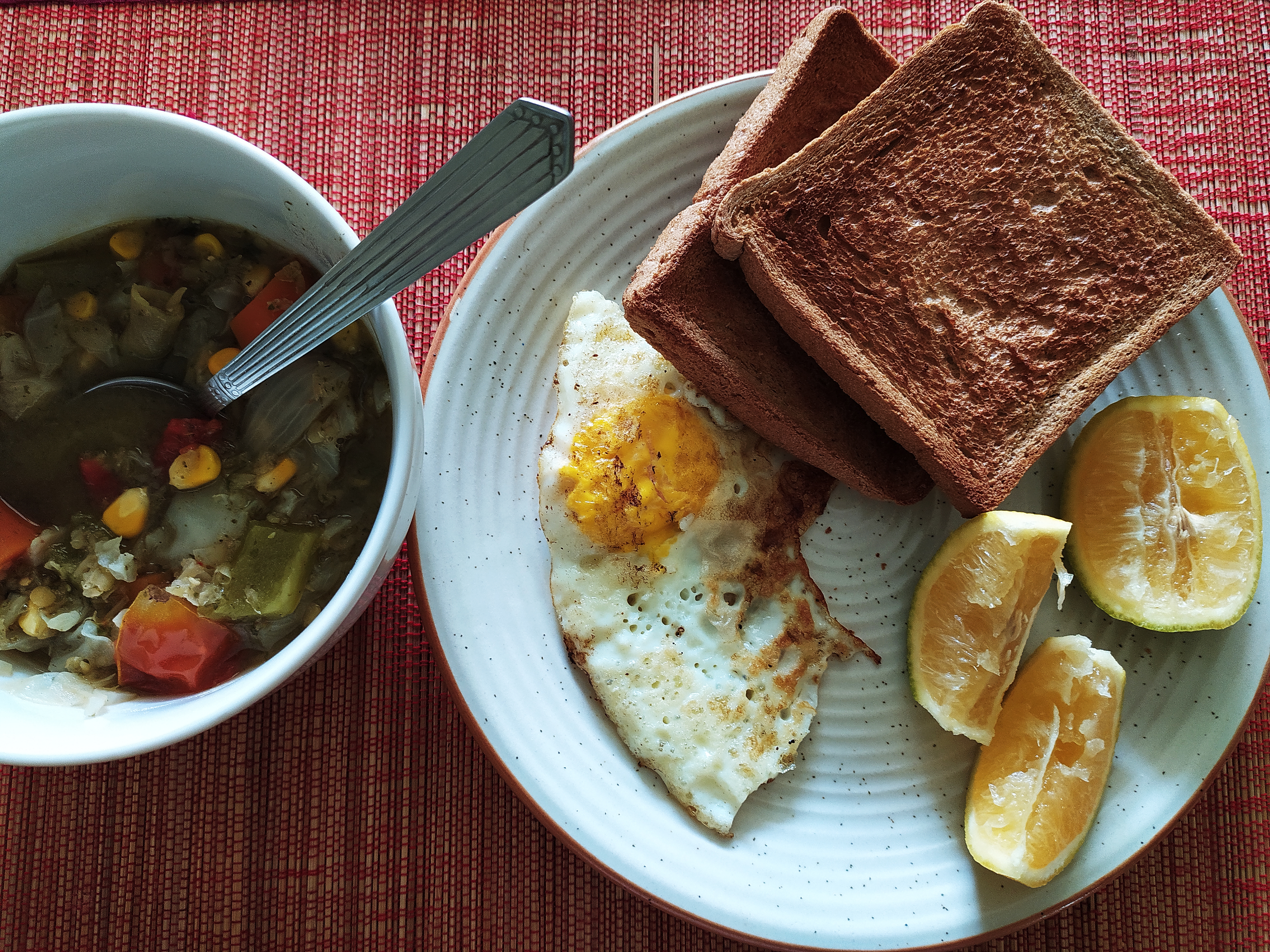
Q 3. What are the best foods to eat during the COVID-19 pandemic?
During the COVID-19 pandemic, unprocessed and less processed foods that are sources of complex carbohydrates, polyunsaturated fatty acids (PUFA), protein, vitamins, minerals, antioxidants, and probiotics should be eaten.
Highly processed foods, fatty foods, fried foods should be avoided. Intake of salt and sugar should be reduced.
List of best foods to eat during the COVID-19 pandemic
- Fermented rice products like dosa, idli, kanji or pantavaat
- Fermented milk products like curd, yoghurt, buttermilk, chass, lassi etc.
- Milk products like chana, paneer etc.
- Traditional breakfast cereals like rice and wheat products and oats
- Vegetable protein foods like soybean, mushroom and pulses (masoor dal, mung dal etc.)
- Animal protein foods like egg, fish, chicken and milk
- A handful of peanuts or a tablespoon of home-made peanut butter should be included in the daily diet of vegetarians.
- Colourful seasonal fruits like mango (yellow), ripe papaya (orange), guava (green to yellow), watermelon (red), banana (white), cucumber (green) etc.
- Seasonal citrus fruits like lemon, sweet lemon, orange etc.
- Antioxidant-rich foods like green leafy vegetables, home-made fruit juices and vegetable soups. All seasonal vegetables should be taken liberally.

Bottom line
Along with the prescribed medicines, intake of nutritious foods is very important for COVID-19 positive patients. The patient’s diet should be rich in protein and carbohydrate, containing a moderate amount of fats and dietary fibre. Plenty of coloured fruits and vegetables should be included. Home-made vegetable soups and fruit juices can be given instead of whole vegetables and fruits to reduce fibre intake and to ensure adequate intake of vitamins, minerals and antioxidants. Fermented milk and rice product is to be given to increase probiotics intake.
The diet should be easy-to-consumed, easy-to swallow, easy-to-digest and semi-solid in soft in consistency. It should be non-spicy and non-irritative in nature. Foods should not be too hot or too cold.
Intake of all types of processed foods, instant foods, soft drinks, fried foods and fatty foods should be restricted.
For more readings click the links mentioned below-
- https://www.cdc.gov/coronavirus/2019-ncov/daily-life-coping/food-and-COVID-19.html
- https://www.unicef.org/coronavirus/easy-affordable-and-healthy-eating-tips-during-coronavirus-disease-covid-19-outbreak
- https://academic.oup.com/nutritionreviews/advance-article/doi/10.1093/nutrit/nuaa067/5870414
- https://www.karger.com/Article/FullText/513449

